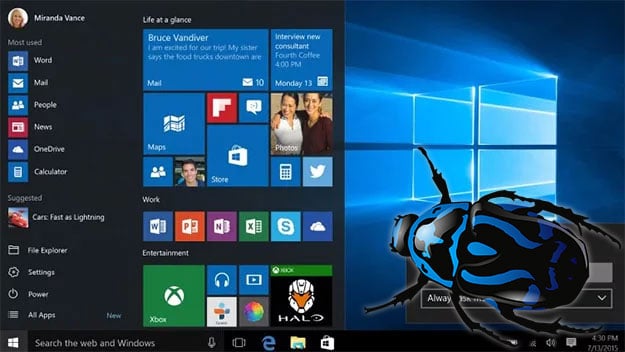Microsoft Confirms Annoying Zip Bug In Windows 10 October Update And Offers This Workaround

Following reports of the October 2018 Update for Windows 10 messing with the extraction process of Zip archives, Microsoft confirmed that this is in fact a known issue, which by extension means the company is working on a fix. In the meantime, Microsoft has offered up a couple of workarounds, and a very important tip.
A few days ago, users noticed that when extracting the contents of a Zip archive to a destination folder with duplication filenames (or one that is write-protected), there was no dialog prompt to warn of the conflict. Under normal circumstances, a dialog box would appear and give the user three options:
- Replace the files in the destination
- Skip these files
- Let me decide for each file
In Windows 10 builds that have the October 2018 Update installed, the dialog box never materializes. Users assumed Windows was overwriting files with duplicate filenames in these situations. I tested this on my own PC, which has the October 2018 Update installed, and discovered that it wasn't doing that. Instead, it leaves the original file intact. Microsoft confirmed this in a support document.
"With the Windows 10 October 2018 Update, if you copy or move files from a Zip file (without first 'extracting' the contents) in to a new destination folder that contains duplicate filenames or is write-protected, you don’t get a 'Do you want to replace these files' prompt. It will appear that the files were overwritten, when in fact the copy action for those files is not executed and files have not been overwritten," Microsoft said.
What's essentially happening is that the copy action for the duplicate file names silent fails in these situations. It would be easy to assume everything extracted properly, when in fact that isn't the case.
While not as severe as some users initially though, there actually are instances where this bug can destroy a file. "Important: Do not attempt to Cut and Paste items from a compressed (.zip) folder. This may result in unintentionally deleting items that may not be recoverable," Microsoft says.
Microsoft says it's working on a fix and anticipates rolling it out in "early November." Until then, Microsoft recommends fully extracting Zip folders before copying them to a new destination folder. We'll expand on that—fully extract Zip folders *to an empty folder* before copying them to whatever destination folder you had in mind.
If you deleted any files because you though everything went as it should, you can of course recover them from the Recycle Bin. Alternatively, you can restore files from the Temporary File Directory by pressing the Windows key + R and typing %temp%, then click OK.

